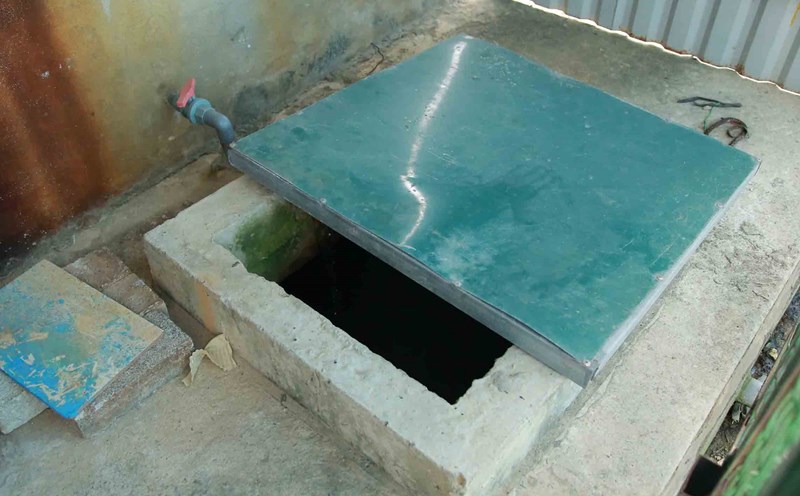Fake goods surround consumers
After the arrest of Hang Du Muc and Quang Linh Vlogs for advertising fake vegetable candy, public opinion continued to be upset about the production of fake milk by Rance Pharma and Hacofood Group, distributing nearly 600 products targeting the elderly, children and pregnant women. These products self-declare their quality and pass the inspection of the authorities.
Recently, Thanh Hoa Police dismantled a fake drug production ring, seized nearly 10 tons of drugs of unknown origin, and advertised them for sale on social networks as hand-carried goods to avoid control.
On social networks, livestreams selling fake goods with attractive invitations such as "70% discount" or "Inventory liquidation brand" are increasingly popular. Many consumers still easily "fall into the trap" because of surprisingly cheap prices. Products such as cosmetics, perfumes, and fake lip balms are sold publicly, with sophisticated designs but containing toxic chemicals, which pose a potential health risk.
Social networks and e-commerce platforms are becoming ideal places to sell counterfeit goods, with many suspected stalls, while control measures have not kept up. In particular, many celebrities and KOLs advertising incorrect product functions, causing serious misunderstanding for consumers.
Ms. Hong Linh, owner of a portable store, shared: “I import genuine cosmetics directly from Korea, the price is 2-3 times higher than the floating goods on the internet. The packaging looks the same, but the quality is completely different. Fake goods often use cheap materials, smell and effectively as real products. For example, Jmella 500ml shower gel I imported for 280,000 VND, on the network of only VND 170,000. Sell in the Olive Young chain at high prices, but are sold online - even by celebrities - with only half the price. ”
Many loopholes help counterfeit goods
In the recent large-scale fake milk case with a revenue of nearly 500 billion VND, it is not clear which agency is primarily responsible. The Ministry of Industry and Trade affirmed that it did not license or directly manage the group of commonly processed dairy products, while the Ministry of Health said that the management responsibility belonged to the locality.
According to the Ministry of Industry and Trade, the group of common dairy products is not under the management of the Ministry, except for functional foods or pharmaceuticals with special nutritional components. The issuance of business registration licenses is carried out by the Department of Planning and Investment of localities according to the Enterprise Law.
The Ministry of Health believes that the Ministry is only responsible for directing, while licensing and post-inspection are the tasks of localities.
Mr. Tran Huu Linh - Director of the Domestic Market Management and Development Department (Ministry of Industry and Trade) pointed out 3 reasons why Rance Pharma International Pharmaceutical Joint Stock Company and Hacofood Group Nutrition Pharmaceutical Joint Stock Company have long-term counterfeit milk production and trading without being detected.
First, businesses must fully carry out legal procedures, create legal covers to conceal product quality violations, and can only be detected through in-depth testing without any complaints from consumers.
Second, products are consumed through direct marketing, avoiding the supervision of legitimate distribution systems such as supermarkets and agents.
Third, businesses hire celebrities to promote products on social networking platforms, making it difficult to monitor and handle violations.
On April 17, the Ministry of Health warned about the situation of some doctors, pharmacists and celebrities advertising foods and functional foods untruthfully, causing misunderstanding to consumers and violating the law. The Ministry requires medical facilities and professional associations to review and handle violations.
The Food Safety Department also recommends that people be cautious with promotional videos from celebrities or "online doctors", because many of the contents are unverified and can harm public health.










